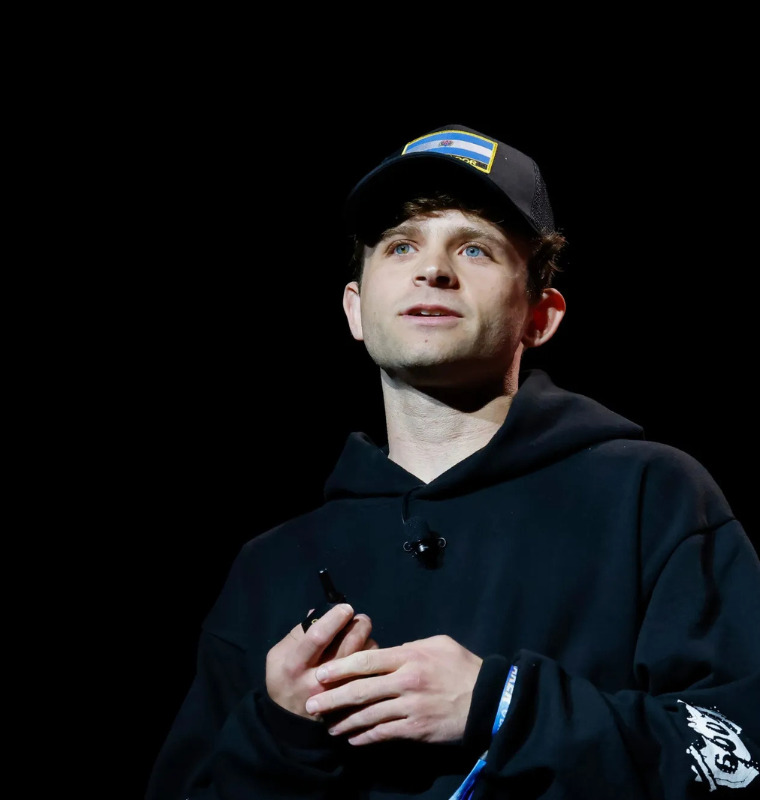FCC Greenlights $8.4 Billion Paramount-Skydance Mega Merger
By
Calder Monroe
Last updated:
July 25, 2025
First Published:
August 6, 2025
.webp)
Photo: Bloomberg.com
Paramount and Skydance Finalize Groundbreaking $8.4 Billion Merger
The Federal Communications Commission (FCC) has officially approved the long-anticipated $8.4 billion merger between Paramount Global and Skydance Media, ushering in a dramatic transformation across the entertainment and media industries. The all-cash-and-stock deal includes ownership of Paramount Pictures, the CBS broadcast network, and the children's programming powerhouse, Nickelodeon.
The merger gives Skydance, the Hollywood studio helmed by David Ellison, majority control over a legacy media empire at a time of declining cable subscriptions, rapidly evolving streaming trends, and increasing political scrutiny of media ownership and content.
Regulatory Approval and Political Undertones
FCC Chairman Brendan Carr supported the merger, highlighting a need for "significant changes" in the current media environment. In his statement, Carr emphasized the declining public trust in traditional news outlets, noting, “Americans no longer trust the legacy national news media to report fully, accurately, and fairly. It is time for a change.”
Carr also revealed that Skydance made formal commitments to promote a range of ideological perspectives in its content and pledged to appoint an independent third-party monitor to investigate claims of political or editorial bias. Notably, Skydance has agreed not to implement any diversity, equity, and inclusion (DEI) initiatives across its newly acquired media platforms.
However, the FCC’s decision was not unanimous. Commissioner Anna Gomez, the sole Democrat on the panel, cast a dissenting vote. Gomez criticized the deal in the context of Paramount's $16 million legal settlement with former President Donald Trump. The payment stemmed from a defamation lawsuit regarding the editing of a “60 Minutes” interview with then–Vice President Kamala Harris. Gomez suggested the settlement may have signaled political appeasement.
“This reckless approval has emboldened those who believe the government can — and should — abuse its power to extract financial and ideological concessions,” Gomez said in her dissent.
High-Level Departures and Corporate Restructuring
As part of the deal, Shari Redstone, the chair of Paramount and daughter of media mogul Sumner Redstone, will step down from the company’s board. Her family’s holding company, National Amusements Inc., is divesting its controlling stake, transferring the reins to Skydance and its financial backers.
David Ellison, the 41-year-old founder of Skydance and son of Oracle co-founder Larry Ellison (net worth: $142 billion as of 2025), is expected to take a more active leadership role in the reorganized conglomerate. The merger also includes private equity backing, reportedly involving RedBird Capital and KKR, bolstering Skydance’s firepower as it competes with giants like Disney, Netflix, and Amazon.
Controversy Surrounding CBS and Late-Night Shake-Up
The timing of CBS’s recent programming changes has only intensified scrutiny. Just days after settling the Trump lawsuit, CBS abruptly canceled The Late Show with Stephen Colbert, a longtime critic of the former president. Colbert publicly criticized the settlement, referring to it as a “big fat bribe” in a monologue. Although CBS executives stated the cancellation was driven by financial factors and a challenging ad market, political observers and media watchdogs remain skeptical.
The Writer’s Guild of America (WGA) called for a multi-state investigation into whether CBS’s decision was influenced by political pressure. In a public letter to New York Attorney General Letitia James, the WGA wrote: “Cancelations are part of the business, but terminating a show in bad faith due to political influence is dangerous and unacceptable in a democratic society.”
Senators Elizabeth Warren (D-MA) and Adam Schiff (D-CA) echoed similar concerns. In an op-ed for Variety, Warren questioned the integrity of the process: “Was it a coincidence that CBS canceled Colbert just three days after he spoke out? Or was it part of a wink-wink deal with a president whose approval was needed for an $8 billion merger?”
What’s Next for the Paramount-Skydance Media Empire
The newly formed media titan now faces both opportunities and challenges. Paramount’s film division has struggled in recent years, with hits like Top Gun: Maverick unable to offset losses in streaming. Meanwhile, CBS continues to face viewership declines in prime time. Skydance will need to revamp programming, modernize its streaming platforms like Paramount+, and rebuild public trust — all while managing increasing political scrutiny and cultural expectations.
The merger reflects a broader trend of media consolidation, where companies seek to survive by pooling content libraries, cutting costs, and taking on bigger rivals. With Skydance now in control of legacy brands and national broadcast assets, the spotlight will remain firmly on how the company reshapes one of America’s oldest media institutions.
A Deal That Redefines Media Power
The FCC’s approval of this $8.4 billion deal may mark the beginning of a new era in American media — one where political ideologies, legacy institutions, and tech money collide. Whether Skydance’s leadership can navigate the minefield of public opinion, regulatory demands, and content innovation remains to be seen. But what’s clear is that this merger has already shifted the power dynamics of Hollywood and Washington alike.
Popular articles
Subscribe to unlock premium content
Disney’s Timeless Magic and How the Entertainment Giant Continues to Shape Culture and Innovation

Imran Khan’s Economic Missteps Amid Political Chaos in Pakistan

The Philippines’ Digital Shift How Remittances and BPO Are Fueling Growth

Disney’s Timeless Magic and How the Entertainment Giant Continues to Shape Culture and Innovation

Imran Khan’s Economic Missteps Amid Political Chaos in Pakistan

Disney’s Timeless Magic and How the Entertainment Giant Continues to Shape Culture and Innovation









